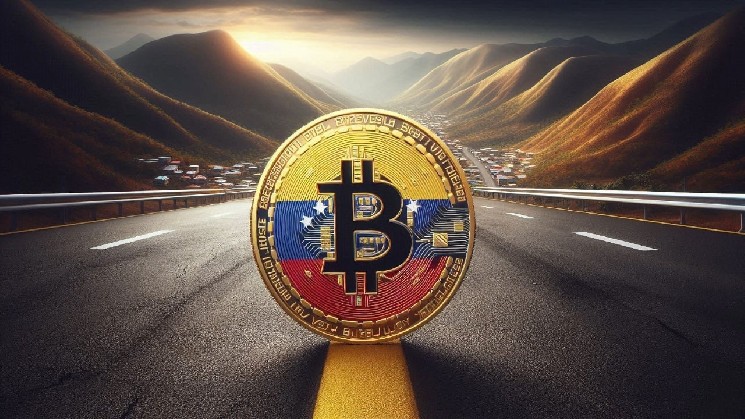Venezuelan President Nicolas Maduro Proposes Retaking the ‘Crypto Path’

Venezuelan President Nicolas Maduro discussed the possible future of the national cryptocurrency system following the so-called PDVSA-Crypto scheme, which resulted in the loss of $20 billion in unaccounted oil sales paid in crypto. Maduro stated that the country needed to retake the crypto path but gave no indications regarding the revival of the national cryptocurrency asset, the petro.
Venezuelan President Nicolas Maduro Hints at a More Crypto-Friendly Future, States Venezuela Needs to ‘Retake the Crypto Path’
Venezuela might retake a crypto-friendly stance in the future. Recent statements given by President Nicolas Maduro at a meeting with banking sector representatives hint at a reconsideration of the role of cryptocurrency in the country, after taking several measures that affected exchanges and mining initiatives in the past.
Maduro touched on the cryptocurrency issue while talking about how the world is migrating to a multi-currency model, including a basket of currencies based on the dollar, the yuan, the ruble, the rupee, and other fiat currencies. He stated:
Let’s talk about the world of cryptocurrencies. We started that path and we have to get back on it because a group of bandits and thieves destroyed the path of cryptocurrencies, but we are going to get back on it.
However, Maduro did not reference the petro, the national cryptocurrency reported to be on the brink of liquidation in January.
Maduro’s “bandits and thieves” reference points to the so-called PDVSA-Crypto scheme, where officials from PDVSA, the state-owned oil company, sold shipments and received payments of up to $20 billion in cryptocurrency and other fiat currencies through Sunacrip, the national cryptocurrency watchdog. However, these funds were not reported to the national treasure.
This resulted in the arrest of former Sunacrip head Joselit Ramirez and former PDVSA President Tareck El Aissami. Also, Sunacrip entered a restructuring period over a year ago. Bitcoin miners were also forced to pull the plug on their operations in May when over 17,000 mining machines were seized by the National Power Ministry to reduce power consumption as the country went through constant blackouts.





 Bitcoin
Bitcoin  Ethereum
Ethereum  Tether
Tether  USDC
USDC  Dogecoin
Dogecoin  TRON
TRON  Cardano
Cardano  Chainlink
Chainlink  Bitcoin Cash
Bitcoin Cash  LEO Token
LEO Token  Litecoin
Litecoin  Dai
Dai  Monero
Monero  Stellar
Stellar  Ethereum Classic
Ethereum Classic  Stacks
Stacks  OKB
OKB  Cronos
Cronos  Hedera
Hedera  Cosmos Hub
Cosmos Hub  Theta Network
Theta Network  Gate
Gate  KuCoin
KuCoin  Maker
Maker  Algorand
Algorand  Polygon
Polygon  NEO
NEO  EOS
EOS  Tether Gold
Tether Gold  Tezos
Tezos  Zcash
Zcash  TrueUSD
TrueUSD  Synthetix Network
Synthetix Network  IOTA
IOTA  Bitcoin Gold
Bitcoin Gold  Holo
Holo  Dash
Dash  Zilliqa
Zilliqa  0x Protocol
0x Protocol  Siacoin
Siacoin  Enjin Coin
Enjin Coin  Ravencoin
Ravencoin  Basic Attention
Basic Attention  Qtum
Qtum  Decred
Decred  Ontology
Ontology  NEM
NEM  Lisk
Lisk  Nano
Nano  Numeraire
Numeraire  Pax Dollar
Pax Dollar  DigiByte
DigiByte  Waves
Waves  Status
Status  Huobi
Huobi  Hive
Hive  Steem
Steem  BUSD
BUSD  OMG Network
OMG Network  Ren
Ren  Bitcoin Diamond
Bitcoin Diamond  Bytom
Bytom  Kyber Network Crystal Legacy
Kyber Network Crystal Legacy  HUSD
HUSD